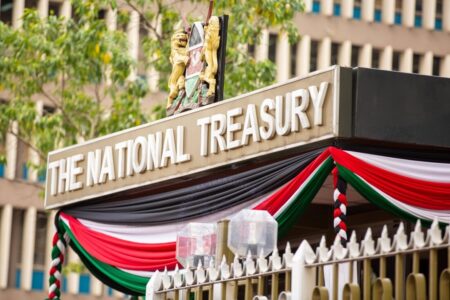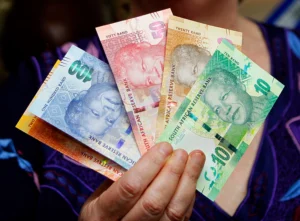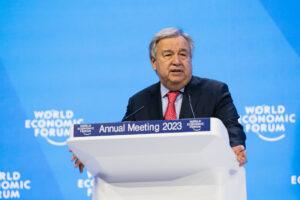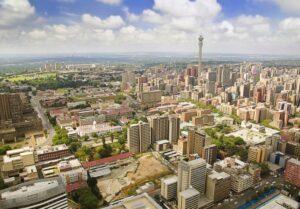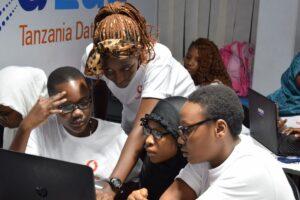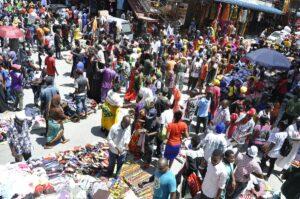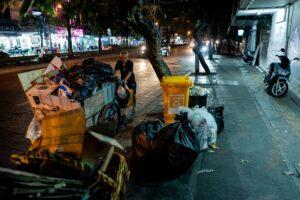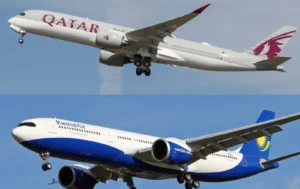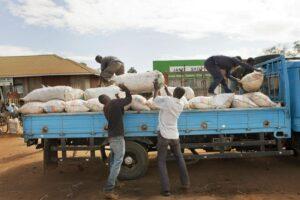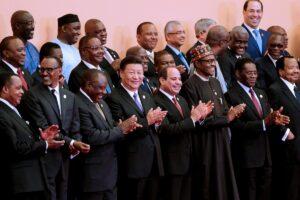- Africa’s new dawn: the rising role of digital and AI in agriculture
- Can Dangote Refinery Transform Africa Energy Ambition
- Gallup Survey: 80 per cent of Kenyan Workers Are Disengaged and Seek New Opportunities
- Madagascar Man Freed from 5KG Tumor After 15-Year Struggle
- How women in Africa are perceived and treated
- Sugar consumption in Kenya to Increase to 1.23 Million Tonnes
- Can Somalia and Turkey Oil deal Bring Change in Somaliland
- Remittances to Kenya dropped to $371.6 million in June, marking a six month low
Premium
- Kenya’s forex reserves dipped to $6.2 billion on May 19, an eight-year low, before a slight improvement to $6.4 billion on May 26.
- At $6.4 billion, Kenya’s reserves are just 3.60 months of import cover, which is below the Central Bank of Kenya’s desired target.
- What’s more, the reserves are below the East Africa Community preferred threshold of 4.5 months of import cover, hence exposing the country to high volatilities in the global market.
A dip in export earnings, coupled with reducing diaspora inflows at a time of huge debt repayments have left Kenya grappling with low forex reserves, raising concerns on the health of East Africa’s economic powerhouse.
The low forex reserves are further compounding the dollar shortage problem that has been gripping importers for months. Importers, mainly in the manufacturing and the energy sectors, have been struggling to secure the greenback to replenish their suppliers.
Kenya’s forex reserves
…According to SWIFT, African regions with strong integration saw increased use of local currencies and decreased use of hard currencies such as the US dollar. For instance, the use of the West African franc by the eight countries in the West African Economic and Monetary Union has overtaken the South African rand and the British West African pound.
This implies that boosting the use of regional currencies will shield the African trade market from adverse global conditions associated with the performance of US dollars. However, further regional coordination remains necessary to build a continental payment system that encourages the use of local correspondent banks and local currencies. These moves can help in managing currency depreciation to boost African trade finance. …
Into a menacing economic quick sand African economies have been sinking, taking hefty blows from numerous unprecedented challenges birthed by the overarching global crisis. The status quo has instigated a clarion call to cushion them from dipping further beneath the horizon, by casting different viable iron rods, as the ‘one shoe fits all’ approach is not feasible due the dynamic nature of African economies. Inarguably, Africa has not been left unscathed amid the ongoing global ‘polycrisis’, as described in the 2023 World Economic Forum’s (WEF) Global Risks Report, to mean a cluster of related global risks with compounding effects, such that the overall impact exceeds the sum of each part.
In light of this, on day three of the WEF in Davos, Switzerland, UN Secretary General António Guterres in his speech, stated that at present the world faces “a category five” storm of challenges that need urgent action. These include …
The AfCFTA presents a significant opportunity for African countries to bring 30 million people out of extreme poverty and to raise the incomes of 68 million others who live on less than $5.50 per day. The AfCFTA is the new anchor to pull multinationals to invest in Africa.
This agreement not only brings hope to African governments but also encourages current efforts on the ground, which improve jobs in Africa.
The World Bank points out that the AfCFTA will create the largest free trade area in the world, measured by the number of countries participating. The pact connects 1.3 billion people across 55 countries with a combined gross domestic product (GDP) valued at $3.4 trillion.
It has the potential to lift 30 million people out of extreme poverty, but achieving its full potential will depend on putting in place significant policy reforms and trade facilitation measures. …
- Tourism is one of key economic sectors championed by President Samia
- At present the economy stands at 5.2 per cent
- President Samia’s administration is pinning its efforts against the backdrop of the FYDP 2021/22-2025/26
Her Excellency, President Samia Suluhu Hassan, Tanzania’s 6th president, has the same dream as her predecessors did – that of making Tanzania a prosperous African powerhouse.
Tanzania is not new to the ins and outs of development. It has demonstrated to the entire world it is up for a fight towards ascending to the top.
In July 2021, the World Bank (WB) upgraded Tanzania’s economy from low to lower-middle-income status, indicating that Tanzania means business.
Since President Samia took office, tackling investment hurdles, improving economic diplomacy and building joint efforts to achieve Tanzania’s development goals have rocketed her administration.
Numbers pivot towards describing how Tanzania has worked hard to stay stable and relevant in the …
In this context, it is only intelligent and strategic for any country, especially developing economies, to start laying down foundations on how they will work in the coming future. We take a look at Tanzania.
The WEF argues that new technologies, demographic shifts, and the impact of COVID-19 on the labour market have been radically transforming how organizations conduct business and the type of skills their human capital needs to support them thrive in this new era of work.
“Nearly 50 per cent of companies expected that by 2020, automation will lead to some reduction in their full-time workforce, while more than half of all employees will require significant re-skilling and upskilling,” notes WEF. …
Since the advancement of the standard of living, most parts of the world have experienced a relatively rapid population growth than ever before which can be hugely beneficial for economic development if utilized strategically.
Population growth is rapidly occurring in Africa, with Tanzania now hosting more than 59 million people in its vast, arable and mineral-rich land. This increase puts the East African country, which ascended last year to a low-middle-income status, in a much more advantageous position to move forward or experience a decline.
The World Bank (WB) – one of Africa’s (and Tanzania’s) close development partner argues that Africa’s population is rising rapidly and will likely double by 2050.
READ:It’s a jumbo task as elephant population in Africa soars
“Africa will soon pass one billion people (it may already have) and could reach up to two billion people by 2050. This makes it the fastest-growing continent, and …
The entertainment and media industry has evolved to become one of the most profitable sectors in modern economy. Across continents, entertainment and media (E&M) has levitated talents and shared cultures like no other format since the dawn of time.
At the same time, media has connected cultures beyond language and physical barriers. Who doesn’t know Diamond Platnumz, Ali Kiba or Zuchu (except for non-Afro pop fans) in East, South and Central Africa, to mention a few?
From e-papers to virtual reality, modern ways of communication have made information- sharing seamless, and the world has become a village, literally.
When it comes to entertainment in Africa, Tanzania’s music industry has evolved over the past decade to become one of the most profitable creative performing arts landscapes.
International accolades won by Rayvanny, Diamond Platnumz, Ali Kiba, and many more prove how the genre has spilt over multiple locations worldwide, especially high-performing landscapes …
- More people are becoming poor while few are getting extremely wealthy
- The pandemic has exacerbated the levels of inequality in the world
- South Africa is the most unequal country in Africa
Around one billion people live on less than one dollar per day, while the wealthiest 10 per cent of the population currently take 52 per cent of the global income and the poorest half just 8 per cent (World Inequality Report, 2022).
The World Inequality Report brings concise and up-to-date data on various aspects of global inequality. Hence, the report marks inequality as a constant thorn hurting the economies of developing nations, even after three decades of trade and financial globalization.
In terms of numbers, the report pointed out that during the first wave of the pandemic, global billionaires’ wealth grew by $3.7 trillion, which is equivalent to the total annual spending on public health by all governments in …





